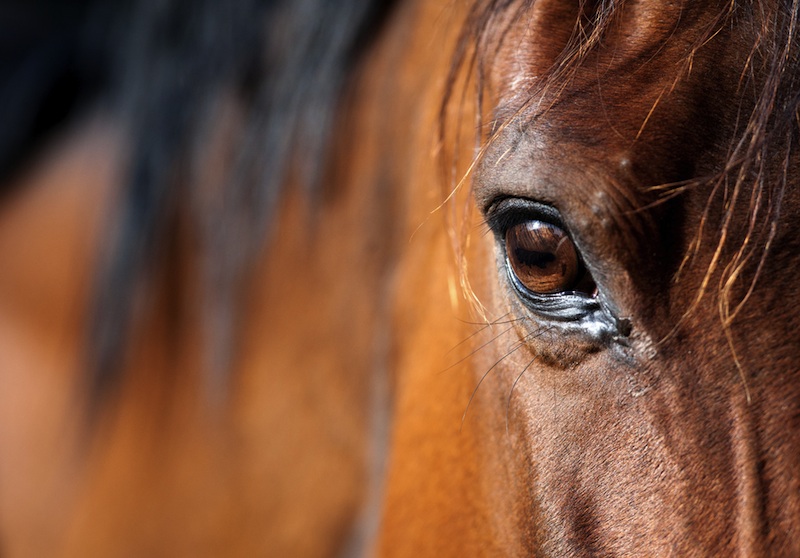
Slaughterhouses Aren't the Solution for Horse Overpopulation (Op-Ed)

Wayne Pacelle is the president and chief executive officer of The Humane Society of the United States (HSUS). This Op-Ed is adapted from a post on the blog A Humane Nation, where the content ran before appearing in LiveScience's Expert Voices: Op-Ed & Insights.
The horse slaughter industry is a global enterprise, with the sellers, transporters, slaughterers and packers often clandestinely going about their work of moving horses from stable to table.
In the United States, which has the world's largest horse population, there is broad opposition to horse slaughter, but federal and state policies don't yet square with popular sentiment. Each year, transporters ship tens of thousands of healthy American horses to Canada and Mexico for slaughter, and the industry is moving to resume slaughter plant operations on U.S. soil, as well.
That's been temporarily blocked by a series of legal actions by The HSUS and Front Range Equine Rescue. And we are working to turn around the broader problem by calling on Congress to pass the Safeguard American Food Exports (SAFE) Act, which would ban horse slaughter in the United States, and also forbid the live export of American horses to our North American neighbors.
Our work to pass the SAFE Act has met resistance from the horse slaughter industry and from a number of agriculture organizations, which value the horses mainly as a commodity. Their side got a boost not long ago when the Navajo Nation's leader said he favored slaughtering horses as a way to deal with the large population of feral horses on the tribe's lands, which cover a physical area the size of West Virginia.
But more recently, Navajo Nation President Ben Shelly reversed course and abandoned his support for the inhumane practice of slaughtering horses for human consumption. We applaud him for working through this and supporting a better way of dealing with conflicts with horses.

"I am interested in long-term humane solutions to manage our horse populations," Shelly told Fernanda Santos of the New York Times. "Our land is precious to the Navajo people as are all the horses on the Navajo Nation. Horses are sacred animals to us."
Sign up for the Live Science daily newsletter now
Get the world’s most fascinating discoveries delivered straight to your inbox.
Major credit also goes to former New Mexico Gov. Bill Richardson for brokering the deal. Richardson, who also served as former U.N. ambassador and as the U.S. Secretary of Energy, is one of the most effective and outspoken animal advocates among the nation's political leaders.He helped outlaw cockfighting in New Mexico and upgraded many other state laws; he also played a major role in protecting former laboratory chimpanzees at the Alamogordo Primate Facility and in aiding the effort to get the National Institutes of Health to agree to phase out their use of chimps in laboratories.
Now he's turned his attention to horse slaughter, and he and actor Robert Redford, working with Animal Protection of New Mexico and the Foundation to Protect New Mexico's Wildlife, have had a major impact. Richardson and Redford also joined The HSUS's federal lawsuit to block horse-slaughtering plants from opening in New Mexico and Iowa.
The Navajo Nation has set a good example by turning to humane long-term solutions instead of resorting to ruthless treatment of horses. The HSUS stands ready to work with them to develop and implement sustainable programs for managing a horse population that everyone can live with, including the horses themselves. We send our great thanks to President Shelley and to Gov. Richardson, and hope that their form of problem-solving provides inspiration to Congress to get to the task of protecting American horses from slaughter, at home and elsewhere throughout North America.
Pacelle's most recent Op-Ed was "As Constrictor Attacks Continue, Look to the Snake Trade" This article was adapted from "Navajos Say Hold Your Horses on Slaughter," which first appeared on the HSUS blog A Humane Nation. The views expressed are those of the author and do not necessarily reflect the views of the publisher. This version of the article was originally published on LiveScience.









